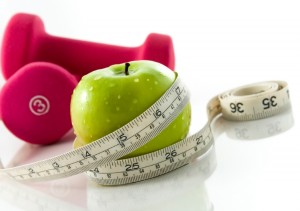 With the arrival of Chanukah a strange feeling has overcome me. With all but one of our children married and out of our home, and our youngest son now serving in Nachal Chareidi, when we light our menorah on the first night of Chanukah, it will stand there all alone.
With the arrival of Chanukah a strange feeling has overcome me. With all but one of our children married and out of our home, and our youngest son now serving in Nachal Chareidi, when we light our menorah on the first night of Chanukah, it will stand there all alone.
I remember times when we needed a large table for all of the menorahs, how candle-lighting took a long time as each child recited the brachos (blessings) and we sang Haneiros Hallalu and Maoz Tur afterwards. I realized that even though there was less light being generated from Chanukah menorahs in my home these days and I was feeling more blessed than those days because less was now more. There was only one menorah burning in our home because in the homes of our married children, there were many more menorahs burning – those of our children and grandchildren.
A Rabbi who was a personal training client of mine years ago once said to me that when he travels back to the United States (he has been in Israel for more than 40 years now), he notices that the word “better” in America seems to go hand and hand with “bigger and more.” Success is translated as more money, more cars, bigger cars, bigger homes, bigger weddings, more food for your money in a restaurant and longer vacations. We strive to build bigger airliners and larger sports stadiums. Yet, it hit me this Chanukah, that bigger and more are not necessarily really better. Many times, less is indeed more. And then I realized that my entire profession is based on that concept.
We all know and understand that when it comes to weight, more is harmful and less is best. Less translates into good health and a happy life. In my weight loss clinic, I spend my days working with people who want more out of life, and need to learn how to do with less in order to achieve their goals.
Are you thinking about another latke or jelly donut over this eight-day period? Jelly donuts, (sufganiot) depending upon the size and filling can be anywhere from 300 to 500 calories each. A latke can be anywhere from 250 to 400 calories depending on the size and the amount of oil in the frying.
Now, let’s see the long-term consequences regarding weight gain. Let’s do the math and understand calories and what they mean. With all of the studies we have produced and all the money spent on research, perhaps it is time to take a look backwards at the very basics of how we gain and how we can lose weight. We gain weight when we consume more calories (energy) than we expend, we lose weight when we expend more calories than we take in, and finally, we maintain weight by keeping our consumption and expenditure even. We expend calories through our metabolism, activity and exercise. Given today’s sedentary lifestyle of cars, elevators and working in front of computers, the result is that we eat more and we burn less.
Consider this: Carrying too much weight causes an array of life-threatening health problems such as heart disease, cancer, type 2 diabetes, and fatty liver disease. In addition, problems that affect our quality of life such as osteoarthritis, digestive issues, depression and problems of self-esteem and self-confidence are prevalent in the overweight and obese. However, having seen success after success in my clinic, I also see how less is more. I watch week after week as people come in with new blood tests showing better sugar numbers and lower cholesterol. Their blood pressure drops.
Less is indeed more, but it can’t happen in one day or one week. This learning process takes time – months for most people. But the rewards you gain (and the weight you lose!), both in terms of physical health and mental well-being, are the “more” here. Those who succeed find it hard to believe that they were ever in the “more and bigger is better” mode.
Remember that in spite of what we see around us, LESS is indeed MORE, just like the menorah burning in your home or your scale trending down. And when it comes to your health, losing weight in a careful and healthy manner (NOT DIETING!) is without a doubt much, much MORE.
Alan Freishtat is an A.C.E. CERTIFIED PERSONAL TRAINER and a BEHAVIORAL CHANGE and WELLNESS COACH with over 19 years of professional experience. Alan is the creator and director of the “10 Weeks to Health” program for weight loss. He is available for private coaching sessions, consultations, assessments and personalized workout programs both in his office and by telephone and skype. Alan also lectures and gives seminars and workshops. He can be reached at 02-651-8502 or 050-555-7175, or by email at alan@alanfitness.com Check out the his web site –www.alanfitness.com US Line: 516-568-5027.
The words of this author reflect his/her own opinions and do not necessarily represent the official position of the Orthodox Union.
